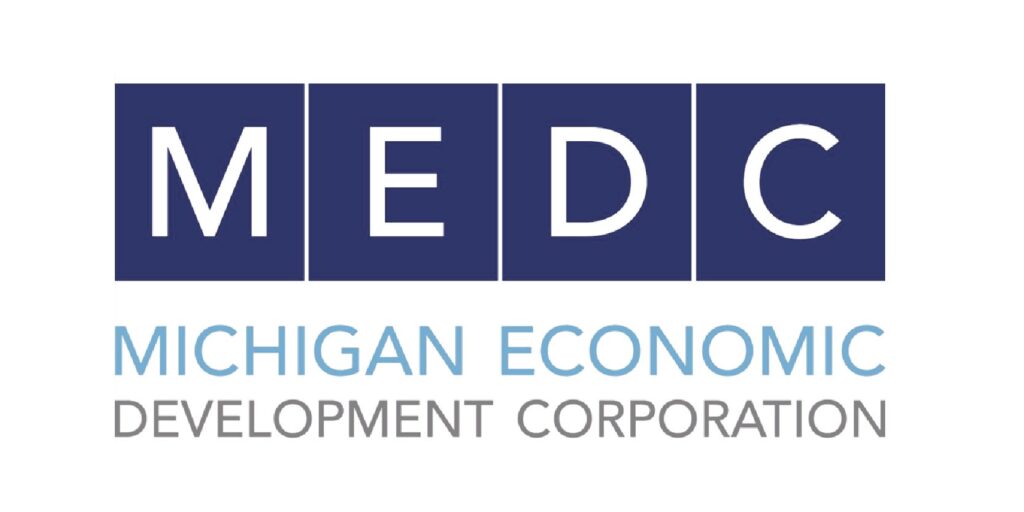
By helping to provide a critical domestic supply chain, the CHIPS Act represents a new era of American industrial competitiveness.
Quentin L. Messer, Jr., CEO, Michigan Economic Development Corporation
Article as it appeared recently in ‘AREA DEVELOPMENT’
Since this summer’s passage of federal legislation aimed at boosting domestic semiconductor manufacturing, several chipmakers have announced plans to build new fabrication facilities in the United States. Fortunately for the country, the CHIPS and Science Act won’t just be a game-changer for the semiconductor industry.
As an RRC participant, The village of Cass City received a comprehensive assessment that measured current community and economic development practices compared to RRC best practice standards. The program evaluates and certifies communities that integrate transparency, predictability, and efficiency into economic development practices. Certification status is a compelling indicator that a community has removed development barriers and streamlined processes to be more competitive and attractive to investors.
The global chip shortage has hurt the production of cars and other essential American products. Increasing the access and availability of semiconductors is crucial for our national and economic security as we compete for technological leadership on a global playing field, ensuring that Michigan-based companies like Whirlpool, GM, and Ford are able to respond in real time to customer demand.
Increasing the access and availability of semiconductors is crucial for our national and economic security as we compete for technological leadership on a global playing field.Fostering Innovation
Creating a more robust American semiconductor industry will also foster a vibrant innovation ecosystem that creates new opportunities. It’s easy to forget that Americans invented the transistor, a tiny semiconductor device that allowed for the precise control of the amount and flow of current through circuit boards. The birth of the semiconductor industry was the force behind the computer revolution. The next great digital invention is being built in an American garage as we speak.
In Michigan, we celebrate the CHIPS Act! Michigan helped lead the bipartisan charge for the bill’s passage because we know the stable supply of chips is vital to building a championship economy in our state and nationwide. The average passenger vehicle may have 1,200 different chips that serve as the brains of a variety of automotive systems, from cruise control and entertainment to lane-departure warnings and other modern safety features. The transition to EVs and other propulsion systems will only increase the demand for chips, thus underscoring the necessity of a domestic chip supply chain.
Federal economic policies like the CHIPS Act validate all the work we’re doing in Michigan to support industrial sectors critical to our economic growth and future.
Michigan is home to several companies driving a growing semiconductor supply chain ecosystem domestically and advanced research in semiconductor device and circuit fabrication at the University of Michigan among other Michigan universities. In 2018, KLA, a high-tech, Fortune 500 company specializing in systems and software integral to chip and electronics manufacturing, chose Michigan for the location of second headquarters facility, creating 600 jobs in Ann Arbor.
Creating a more robust American semiconductor industry will also foster a vibrant innovation ecosystem.SK Siltron CSS has invested $300 million in a new semiconductor wafer manufacturing and R&D facility near Bay City. SK Siltron CSS will expand the production of much-needed silicon carbide wafers, considered the future of the industry because of their ability to efficiently transfer energy. Hemlock Semiconductor Operations, the largest producer of polysilicon in the United States, recently announced plans to invest $375 million to modernize and expand operations in the state. And in the Upper Peninsula, Calumet Electronics on Michigan’s scenic Keweenaw Peninsula is positioned to be one of the few domestic IC (integrated circuit) substrate suppliers in the U.S.
The CHIPS Act represents a new era of American industrial competitiveness. Building upon Michigan’s innovative tradition and unsurpassed advanced manufacturing heritage and cognizant of the hard work ahead, we are moving with confidence to create a better future to ensure we take full advantage of economic opportunity afforded by the CHIPS Act.
Quentin L. Messer, Jr., CEO, Michigan Economic Development Corporation
As MEDC CEO, and president and Chair of the Michigan Strategic Fund, Quentin L. Messer, Jr. is charged with implementing and executing MEDC’s core mission of business development and attraction, community development and revitalization, improving access to capital, and enhancing Michigan’s image and brand with a focus on building a strong and equitable economy for all Michiganders. Immediately prior to his role as CEO of MEDC, Quentin served as president and CEO of New Orleans Business Alliance (NOLABA) leading efforts around business attraction, small business growth, talent development, branding, and driving market-responsive, equitable economic growth for New Orleans residents. As the assistant secretary at Louisiana Economic Development, he was designated president of the Louisiana Economic Development Corporation, helping to provide financial assistance to small and medium-size businesses in partnership with the private sector and federal agencies including the U.S. Small Business Administration. An IEDC certified economic developer (CEcD), Quentin received a BA from Princeton University and earned his Juris Doctorate and MBA from Columbia University’s Law and Business Schools, respectively.
###
About Michigan Economic Development Corporation (MEDC) The Michigan Economic Development Corporation is the state’s marketing arm and lead advocate for business development, job awareness, and community development with the focus on growing Michigan’s economy. For more information on the MEDC and our initiatives, visit www.MichiganBusiness.org. For Pure Michigan® tourism information, your trip begins at www.michigan.org. Join the conversation on: Facebook,Instagram, LinkedIn, and Twitter.
Graphic courtesy of AREA DEVELOPMENT’









